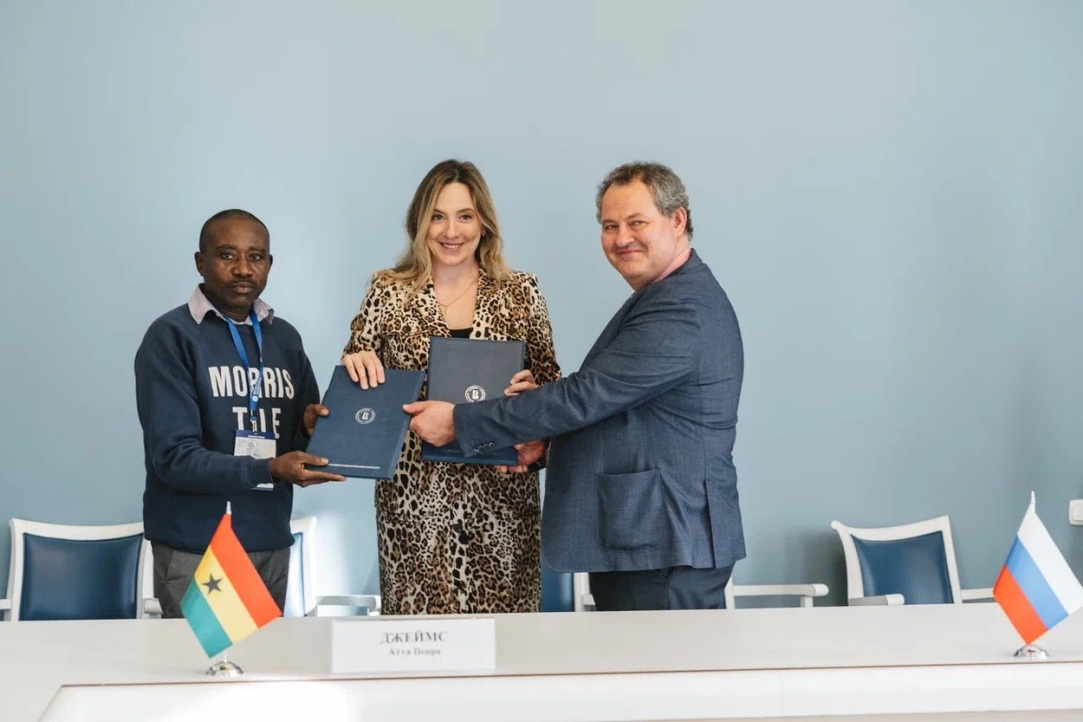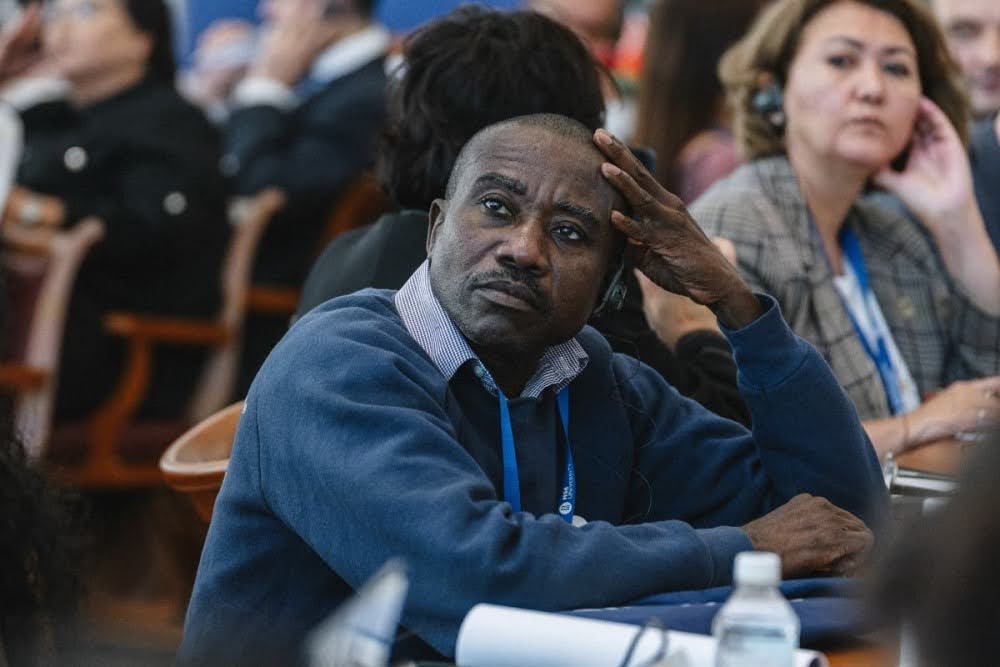Faculty of Economic Sciences to Develop Cooperation with University of Cape Coast

James Atta Peprah, Dean of the School of Economics at the University of Cape Coast (UCC), Ghana, visited HSE University to attend International Partners’ Week and sign a cooperation agreement. In his interview with the HSE News Service, he introduces his university, talks about the prospects of cooperation, and shares some tips for exchange students.
James Atta Peprah, PhD, is an Associate Professor and Dean of the School of Economics at the University of Cape Coast (Ghana). He is also a member of the Executive Committee and Advisory Board of the journal Enterprise Development and Microfinance. His areas of research include development economics, financial markets and institutions in developing countries, microfinance, economic growth and development, as well as small- and medium-scale enterprise (SMEs) development. In addition to his teaching profession, James is an entrepreneur with a microfinance business in Cape Coast. He is also a philanthropist who has helped and continues to support needy students.

— How did you learn about HSE University and start cooperating with it?
— For many years, the Government of Russia has been supporting foreign students who want to study in Russia under full funding, and the co-operation between Ghana and the Russian Federation has been long and deep. We learnt about HSE University through one of our former students, Bertha Tamakloe. She linked us up with the International Office of the Faculty of the Economics Sciences, and our engagement started.
— Tell us more about the University of Cape Coast and its School of Economics.
— The University of Cape Coast, also known as the University of Competitive Choice, has been the number one university in West Africa since 2021, according to the Times Higher Education ranking. The current student population of more than 72,000 study on diverse programmes including Education, Business, Medicine, Pharmacy, Engineering, Social Sciences and Physical Science, among others.
The School of Economics prides itself on high-quality research and publications in Scopus-indexed journals. The school has three main departments: Applied Economics, Economic Studies, and Data Science & Economic Policy. Our research areas include finance and development, health and development, labour market issues, economics of education, blue economy and social resilience, environmental economics, and more.
— Which areas do you consider to be the most promising for cooperation with HSE University?
— We are going to develop research collaboration, staff and student mobility (through exchange programmes), conferences and seminars (online and in person). We will also be happy to have HSE faculty supervise our PhD students.
— What countries do UCC’s international students come from?
— The majority of our foreign students come from neighbouring African countries such Cote d’Ivoire, Burkina Faso, Benin, Togo and Nigeria. We also host a number of exchange students from America and Europe.
— What do students of HSE and UCC need to know about each other’s university and country? What should exchange students prepare for?
— Students coming to a different country should try to learn about the country’s culture so that they integrate well into the system. They should also be familiar with the immigration rules, so that they do not flout any of them. At UCC, the International Office helps with these. Students should also understand the differences in academic systems. At UCC, we will assign them to peer tutors who will communicate with them in English.
— What are your impressions of HSE International Partners’ Week?
— IPW was excellent and I was very happy to be part of it. Russian people are nice and kind. Faculty members at HSE are excellent and we appreciate them. The programme was excellent, and I particularly liked the trips to the various faculties.

